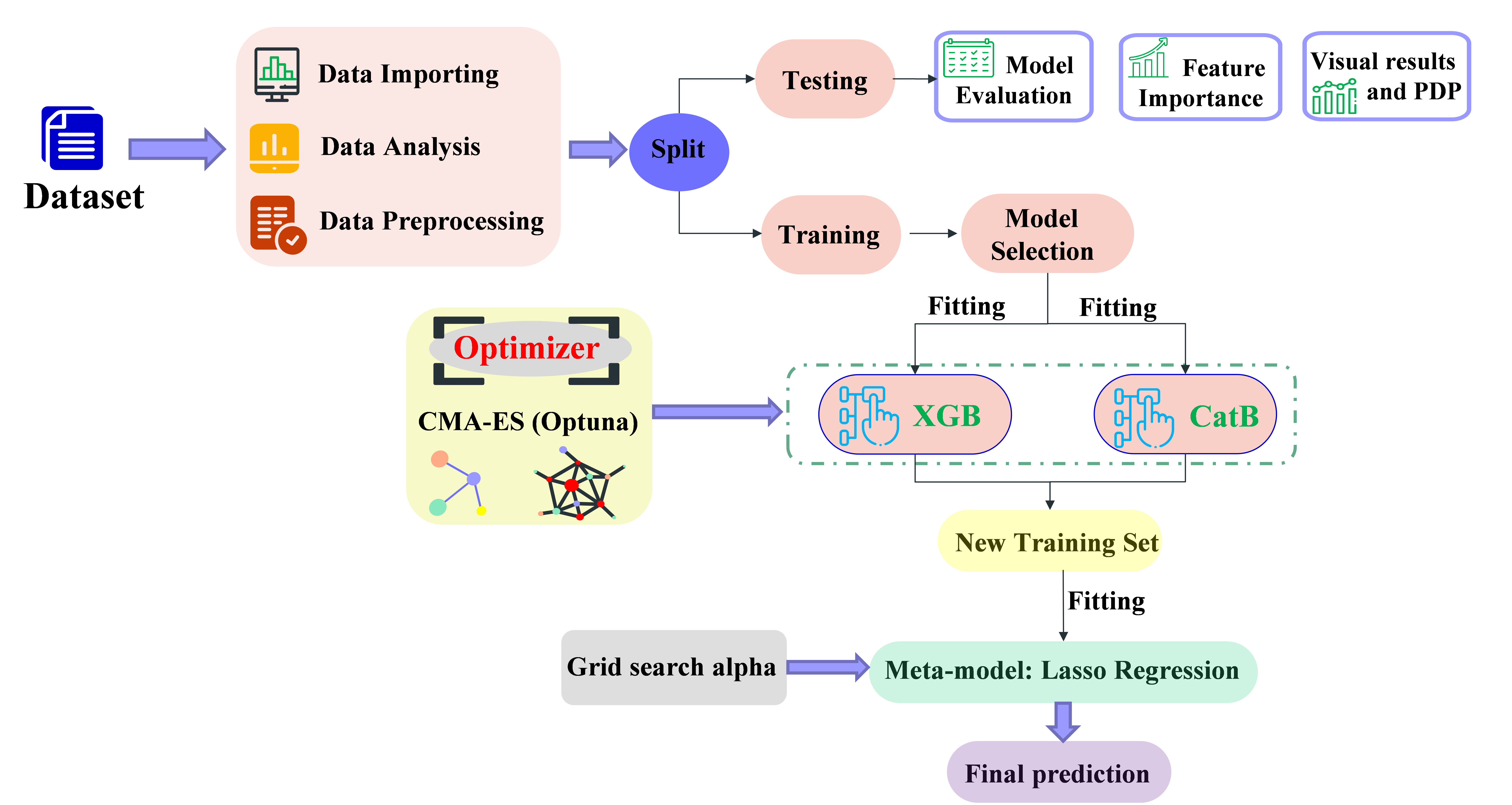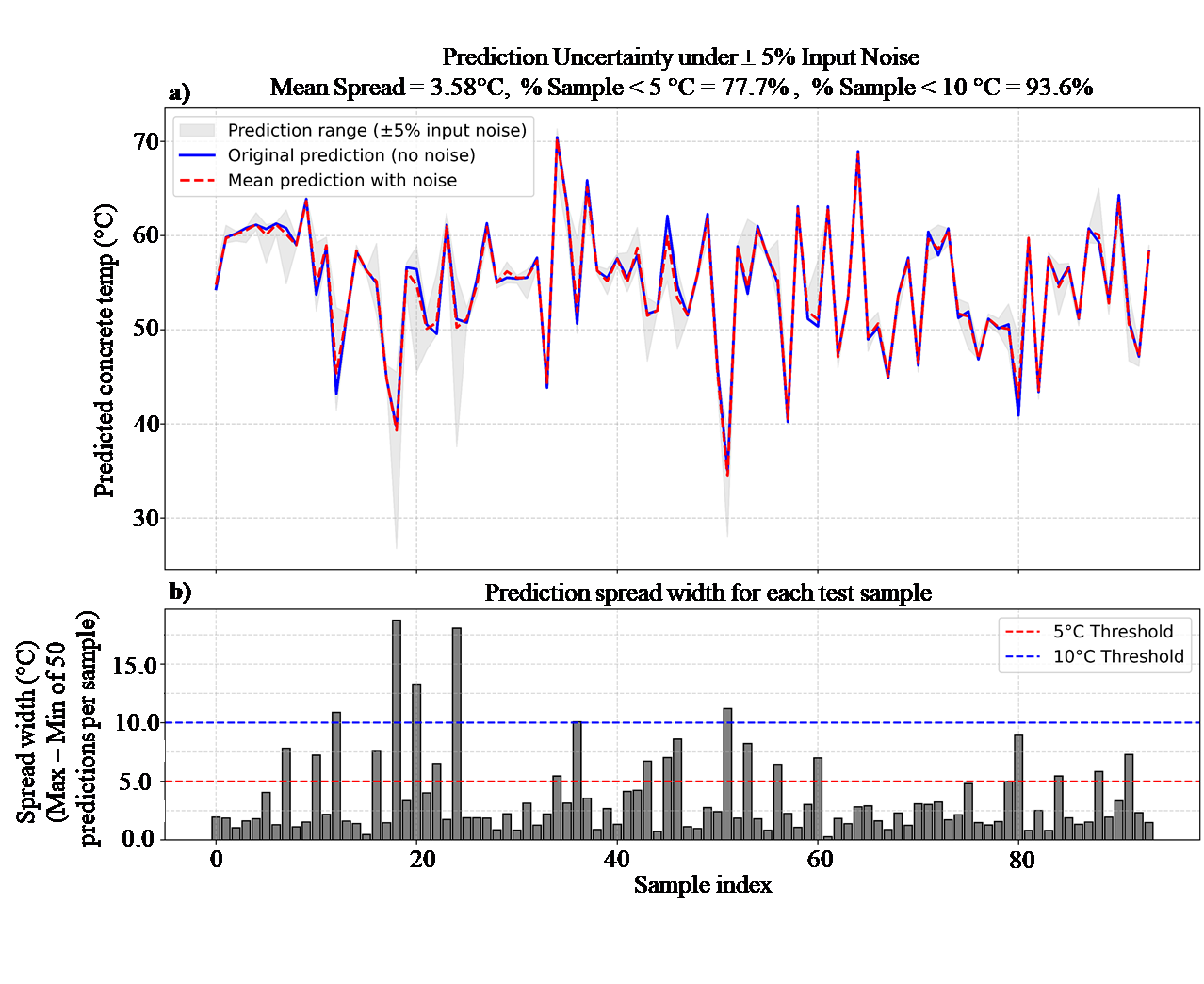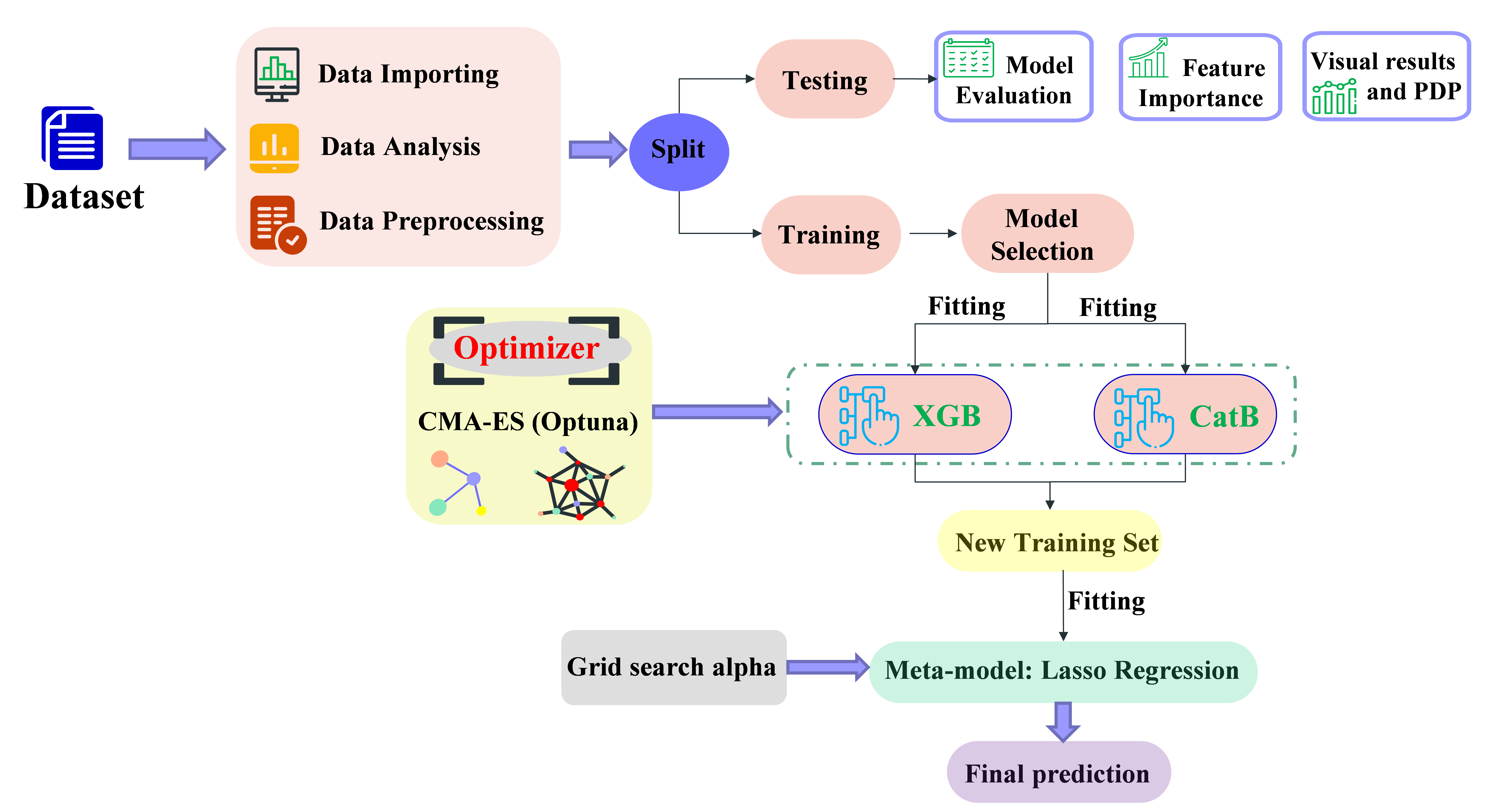SCCE Research Group Publishes in Prestigious Q1 Journal Construction and Building Materials (IF = 7.4)
SCCE Research Group Publishes in Prestigious Q1 Journal Construction and Building Materials (IF = 7.4)
The Smart Computing in Civil Engineering (SCCE) research group, affiliated with the Faculty of Civil Engineering, Ton Duc Thang University (TDTU), has recently published an important research article in the prestigious journal Construction and Building Materials (Q1 – Elsevier, Impact Factor = 7.4). The article is titled:
"Hybrid machine learning for predicting hydration heat in pipe-cooled mass concrete structures"
The study is co-authored by Assoc. Prof. Dr. Mien Van Tran (Ho Chi Minh City University of Technology), Mr. Hung La (graduate student, Faculty of Civil Engineering, TDTU), and Dr. Tan Nguyen (Head of SCCE, TDTU). It introduces a novel hybrid machine learning framework for predicting the evolution of hydration heat in pipe-cooled mass concrete structures, using real-world data collected from wind turbine foundation projects across Vietnam.
Key highlights of the study:
• A hybrid stacking ensemble framework was developed by combining XGBoost, CatBoost, and Lasso Regression, with hyperparameters optimized using the Covariance Matrix Adaptation Evolution Strategy (CMA-ES), leading to improved prediction accuracy and generalization.
• Outstanding performance: The model achieved a test R² of 0.9564, outperforming conventional thermal prediction models.
• Sensitivity analysis (PDP, SHAP) revealed that cooling duration, sensor location, and initial concrete temperature are the most influential factors, contributing over 70% to the model’s predictive power.
• Monte Carlo simulations were used to assess the robustness of the model under ±5% input noise, demonstrating strong stability and resilience.
• High practical relevance: The model supports adaptive cooling design and real-time thermal control in mass concrete construction, helping to reduce thermal cracking and improve long-term structural durability.
This publication is a testament to SCCE's commitment to interdisciplinary research, applying AI and Big Data to solve real-world engineering problems in a sustainable and intelligent manner.
For more details, the full paper is available via:
https://doi.org/10.1016/j.conbuildmat.2025.141558
Some pictures from the paper:

Fig. 1 Workflow of the proposed ensemble model, where CMA-ES optimizes XGBoost and CatB, and Lasso Regression serves as the meta-model for final prediction.

Fig. 2. Prediction uncertainty under ±5% input noise based on 50 Monte Carlo simulations..
- Log in to post comments

